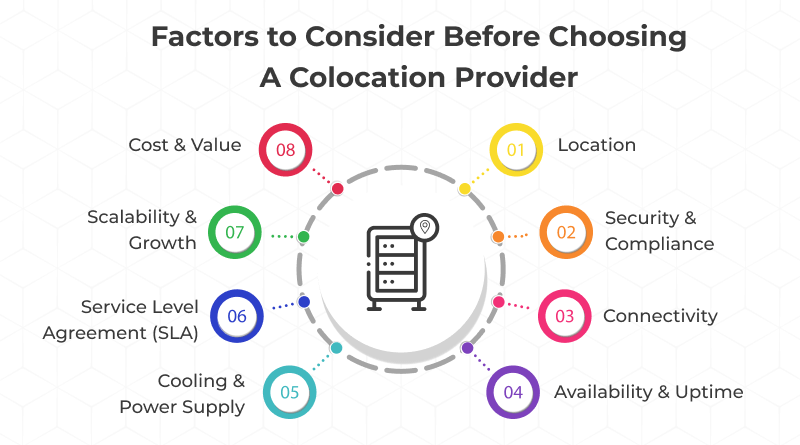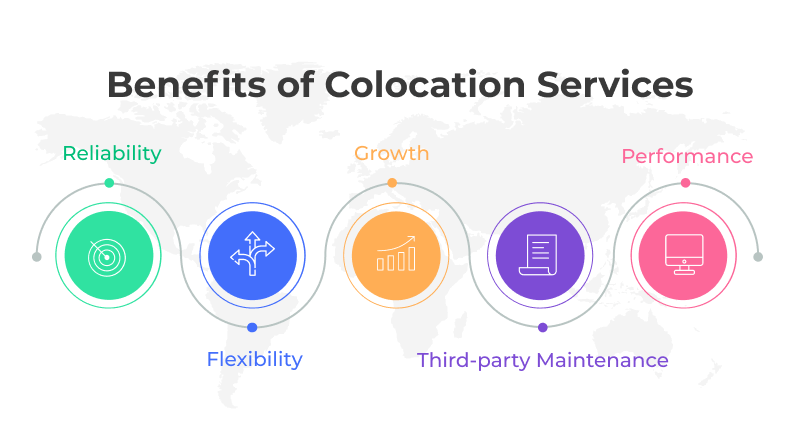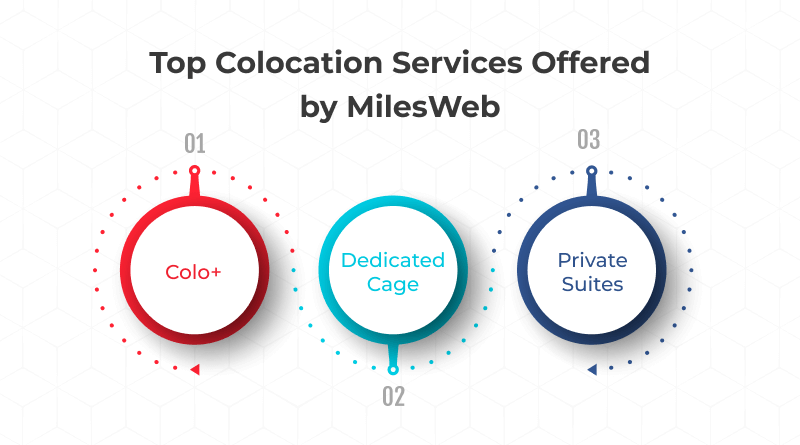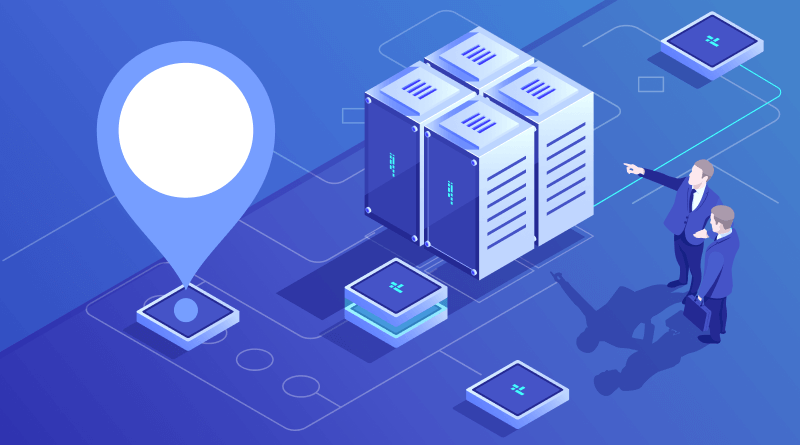If you are into the web hosting business, the word “colocation” is a common term. There are different IT companies who are using this service to build setup computing resources. Hence, we have created this guide that explains “What is colocation?”. Colocation is a rented data center space for the equipment that you have purchased. It means there is a third-party data center that will provide you a server rack space with all relevant resources like power supply and cooling system.
Conventional data centers have a limited set of features without optimizing airflows. Modern-day data centers have a separate power backup and cooling system. Also, newer data centers have separate cool intakes along with a proper exhaust system that does not lead to overheating of servers.
Colocation and colocation hosting is a broad topic. This article uncovers a wide realm of ‘what is colocation service’ and ‘how colocation works’ and it will help you to understand how colocation helps in empowering your business.
Table of Content
What is Colocation?
The dictionary definition of colocation is “to locate (two or more things) together.” But in the IT world, the term is associated with the business model of data centers. Colo, also defined as colocation hosting, refers to the practice of housing privately-owned servers and networking equipment in a third-party data center facility, wherein businesses can rent space, power, cooling, and bandwidth for their computing hardware. Colo offers a secured hardware environment with strong connectivity. Hence, website owners reach customers worldwide without any downtime or performance issues.
Not all businesses have an exponential budget where they can set up a private data center. Hence, the smart move is to rent out a physical server space from a third-party service provider. In return, facilities like racks, cabinets, cages, or rooms are available for colocation customers.
Third-party data centers take care of all infrastructural aspects, and configurations of servers and maintain them forward. This is how many businesses save their core capital which they may invest in their operations to grow their brand value.
What Is Colocation In Data Center?
When the data center provides a home for your server, it is called as colocated hosting. Let’s imagine that you are a business owner who owns a server but doesn’t have an ideal environment to keep running it smoothly. What if a third-party colocation hosting service provider offers a high server space, security, cooling, and network connection? Don’t you think it will benefit you as a business? We hope the answer will be YES!
After all, colocation hosting is a good option for businesses who want more control over their hardware without experiencing the hassles of managing their own data center.
What Is Colocation Hosting?
Colocation hosting, also known as “colo”, is a type of web hosting that involves renting space in a third-party data center to house your own servers and other computing hardware. The data center provides the building, networking, physical security, redundant power, and redundant cooling components. The company retains ownership and control of their servers.
How Colocation Works?
A colocation hosting facility provides their business customers with all server space, security, and physical infrastructure. Customers get the space to set up their servers in a given rack, cage, room, or other.
Trustworthy colocation server hosting providers offer a pay-per-kWh operational model. It helps enterprises to optimize the power infrastructure of a data center at a lower upfront cost. In this model, businesses pay for what they use and save money in the long run.
Every business must look for the proper amount of server rack space, power equipment, IP addresses, and uplink ports while moving into a colocation facility. The best way to verify the credible option is to check their testimonials and research more about the service provider through referrals.
Some of the colocation hosting service provider has 24×7 tech support to upkeep the data center facility. It ensures that there are no power outages. Companies can outsource colocation data centers having their worldwide presence. As a result, the server is set up at different locations worldwide giving a smooth web browsing experience of the target audience.
Factors to Consider Before Choosing A Colocation Provider
There are certain factors that you must consider before choosing a colocation service provider.

- Location: In the web hosting operation, latency rate is a major factor that is related to the website performance. So, figure out in which territory you have the target audience. If your colocation service provider is available in the preferred location. If yes, then it will align with your business needs.
- Security & Compliance: Security is paramount. Look for a provider with industry-recognized certifications and a proven track record of keeping your data safe. This includes physical security measures, network security, and a team of experts to monitor for threats.
- Connectivity: The importance of high-speed bandwidth is crucial to maintaining hassle-free connectivity. A robust infrastructure includes high-speed packet-optical connectivity to connect multiple data centers over long distances.
- Availability & Uptime: Minimizing downtime is crucial. Look for a provider with a strong Service Level Agreement (SLA) that guarantees a certain level of uptime and lays out what happens in case of outages.
- Cooling & Power Supply: Your equipment needs a steady supply of clean power and efficient cooling to function properly. Ensure the provider has redundant power supplies, backup generators, and a robust cooling system that can handle your needs.
- Service Level Agreement (SLA): The SLA is a critical document that outlines the provider’s commitments regarding uptime, support services, and what happens in case of outages. Read it carefully and make sure it meets your expectations.
- Scalability & Growth: Does your business anticipate growth in the future? Choose a provider that can scale its services up or down as your needs evolve. This might include adding more rack space, power, or bandwidth.
- Cost & Value: While cost is important, consider the total value proposition. Look beyond just the base price and factor in things like support services, scalability, and the overall reliability of the provider.
Benefits of Colocation Services

- Reliability
Colocation service providers offer facilities like power, communication systems, and server cooling systems which ensures a constant connection. Companies need to invest a huge capital to achieve the ultimate results. If you are also a business owner looking to lease out the server rack space, colocation service providers are the smart investment to make. Third-party data center works on a monthly subscription model for business customers.
- Performance
Higher website performance is the ultimate goal of any online business owner. But think about machines available in the data center that will function 24×7 to achieve maximum performance. Don’t you think it will overheat? What if those machines are deployed in your office space? It will create havoc and inconvenience for your staff. Thus, colocation service providers have the right infrastructural components to manage overheating and provide a redundant cooling system.
- Third-Party Maintenance
Data centers and physical servers require strong maintenance. It will be a tedious task for business owners because affecting business operations while managing servers is not a good idea. Let the technical overload be on third-party service providers. They have a strong monitor and support system which ensures that your website is running at an optimal performance.
- Growth
Businesses grow their networks but the IT infrastructural limitation occurs after a certain extent. Thus, colocation services allow data storage expansion that fits the company’s needs. With less investment, outsourcing colocation services help enterprises grow exponentially.
- Flexibility
Do you want flexibility in bandwidth size or server space? Colocation has customized plans and solutions to meet the traffic demand without having a multiple investment. As a result, the overall operational cost will turn out to be lower.
Colocation vs Cloud
Running a business online requires reliable storage and processing power for your website or applications. But when it comes to IT infrastructure, two main options emerge: colocation and cloud hosting. Let’s break down the key differences to help you decide which is best for you.

Colocation
In colocation, you get your servers and equipment, but the data center provides the physical space, power, cooling, and security.
Pros
- Control: You have complete control over your hardware and software.
- Security: Ideal for sensitive data requiring strict physical security.
- Customization: Tailor your infrastructure to your specific needs.
Cons
- Upfront Cost: Requires investing in your servers and IT expertise.
- Maintenance: You’re responsible for hardware upkeep and troubleshooting.
- Scalability: Scaling resources up or down can be complex and time-consuming.
Cloud Computing
In cloud computing, You don’t own the servers, but you have access to all the computing power, storage, and software you need, on-demand and easily scalable.
Pros
- Cost-Effective: The pay-as-you-go model eliminates upfront hardware costs.
- Scalability: Easily adjust resources based on traffic or needs.
- Management: The cloud provider handles maintenance and updates.
Cons
- Control: Less control over hardware and software compared to colocation.
- Security: Data resides on the cloud provider’s infrastructure.
- Vendor Lock-In: Switching cloud providers can be complex.
Who Should Choose Colocation Services?
- Strict security requirements
- Large, specialized hardware needs
- In-house IT expertise
Who Should Choose Cloud Computing?
- Value scalability and flexibility
- Prefer a pay-as-you-go model
- Don’t have extensive IT resources
Ultimately, the best choice depends on your specific needs and budget. Consider your comfort level with managing hardware, security requirements, and desired level of control.
Top Colocation Services Offered by MilesWeb
MilesWeb is one of the leading colocation server hosting providers that offers multiple plans as per the user’s requirement. We work on a pay-per-kWh colocation model to optimize energy usage. Customers get up to 42U Rack Space and 6KWh Rated Power with On-Demand KVM IP. Plans prices are competitive as we believe in the optimum client satisfaction and delivering them a higher ROI.

Our Colo Hosting Services
Colo+
Colo+ colocation services are bundled with multiple rack sizes, connection types, customer support, and higher internet speed. In this, we ensure there are no performance issues, remote hands, and expert assistance to optimize the online performance of websites.
Dedicated Cage
MilesWeb’s dedicated hosting and secured cage colocation services are built for scalability. Under this service, there are customizable layouts and security options like mesh walls, locking doors, and power options. Cameras and scanners are also installed on the dedicated cages to ensure their security. Businesses needing a flexible and secure data center solution will benefit from these cages.
Private Suites
Data center server colocation is available through MilesWeb in India. Customizable suites include private power, cooling, and network systems, as well as 24/7 security and privacy. These solutions are designed to be cost-effective for businesses with large deployments. A customized area and dedicated infrastructure are included with the enclosed, solid partitions.
Colocation vs Dedicated Server Hosting
The difference between colocation and dedicated server hosting is that in colocation, the customer owns the hardware, and in dedicated server hosting, the customer rents the server. Colocation means that the client maintains the server. Server installation, management, and maintenance are handled by the hosting provider with dedicated server hosting. It is possible for companies to handle their own IT or outsource it to a hosting company.
A dedicated server hosting provider offers installation, connectivity, bandwidth, and rack space in the data center. The hosting provider owns the hardware, so they are responsible for all maintenance if you rent a dedicated server. In the Service Level Agreement (SLA), which contains all the hosting provider’s contractual agreements, uptime service level guarantees are usually provided for dedicated servers.
In the ever-expanding digital landscape, colocation facilities offer a secure and scalable solution for businesses of all sizes. By leveraging colocation services, you gain access to state-of-the-art infrastructure, enhanced security measures, and expert technical support, all at a competitive cost.
Whether you’re a startup venturing into the cloud or an established enterprise looking to optimize your IT operations, colocation provides a customizable and future-proof foundation for your data center needs. As technology continues to evolve, colocation providers are constantly innovating to deliver cutting-edge solutions that ensure your business can stay ahead of the curve.
Colocation offers a comprehensive solution that empowers you to focus on your core business objectives while leaving the data center management to the experts.
Get in touch with MilesWeb today to explore how our customized solutions can address your specific business needs and propel your digital success in 2025 and beyond.
FAQs
What are colocation services?
Colocation services consist of the practice of renting server space and other computing hardware at a third-party data center. Different resources like networking, physical security, redundant power, and cooling components that support the servers are provided by customers.
What is a colocation data center?
A colocation data center is equipped with state-of-the-art IT infrastructure and facilities. These facilities are designed with redundant power supplies, advanced cooling systems, and top-notch security measures to ensure your data and servers remain operational and protected 24/7.
What are the benefits of colocation for businesses?
There are several advantages to using colocation services cost efficiency, scalability, security, and reliability. Also, customers drive on the expertise to gain access to the data center’s technical support and maintenance services.
What types of businesses typically use colocation services?
Colocation caters to a wide range of businesses. Here are some common examples:
Startups: Get a scalable and secure foundation for your IT infrastructure without a large investment.
Established Enterprises: Optimize IT operations and gain access to advanced data center technology.
E-commerce Businesses: Ensure high availability and fast performance for online stores.
Healthcare Providers: Maintain data privacy and security for sensitive patient information.
Financial Institutions: Benefit from robust security and reliable uptime for financial transactions.















